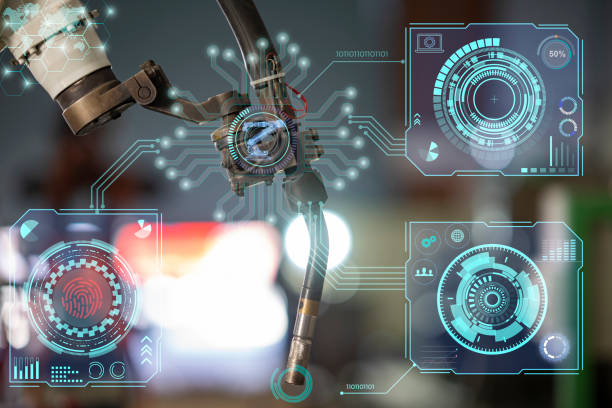Artificial Intelligence (AI) has become an integral part of sports analytics, helping teams gain a competitive edge, enhance fan engagement, and optimize athlete performance. The rapid evolution of AI-powered tools has turned data into actionable insights, driving smarter decisions in the sports world. From player tracking systems to injury prevention algorithms, AI is shaping the future of sports. In this article, we’ll delve into how AI is being used in sports analytics, address common questions people have, and explore potential challenges to its adoption.
How AI Enhances Player Performance
One of the most significant applications of AI in sports analytics is performance optimization. AI algorithms process vast amounts of data collected from wearables, cameras, and sensors to identify patterns and provide feedback to players and coaches.
- Wearable Technology: Devices like GPS trackers and heart rate monitors provide real-time data on an athlete’s speed, stamina, and stress levels. AI analyzes this data to recommend recovery plans and training adjustments.
- Video Analysis: Machine learning models review hours of footage to pinpoint strengths and weaknesses. For example, AI can identify flaws in a player’s batting stance or shooting technique.
- Predictive Modeling: AI forecasts an athlete’s future performance based on historical data. This helps teams decide when to rest key players or modify their roles.
Tamer Badr, the owner of Singleclic, emphasizes, “AI is no longer a luxury in sports. It’s a necessity. Teams that don’t invest in AI-driven analytics are falling behind. At Singleclic, we’ve seen firsthand how the right tools can transform decision-making.”
Improving Team Strategy with AI
Coaches and managers rely on AI to refine game strategies. By analyzing thousands of historical game scenarios, AI can simulate potential outcomes and suggest tactics to outsmart opponents.
Key AI Tools in Strategy Development:
- Heat Maps: AI-generated heat maps illustrate players’ movements, showing where they excel or need improvement.
- Opponent Analysis: AI models study rival teams to uncover weaknesses in their formations or playing styles.
- Real-Time Decision Support: During matches, AI can provide real-time data to aid decisions like substitutions or formation changes.
The Drawbacks:
While AI offers incredible insights, there’s a risk of over-reliance on data. Coaches must balance AI recommendations with their intuition and experience to avoid becoming too predictable.
How AI is Enhancing Fan Engagement
Sports organizations are also leveraging AI to enhance the fan experience. From personalized content to interactive platforms, AI keeps fans more connected to their favorite teams and players.
- Chatbots: Teams use AI-powered chatbots to answer fan queries about match schedules, ticket availability, or player stats.
- Custom Content: Machine learning creates tailored content based on a fan’s preferences, such as highlights of their favorite player.
- Augmented Reality (AR): AI integrates with AR to deliver immersive experiences, like virtual tours of stadiums or real-time player stats during a game.
However, privacy concerns can arise when collecting and using fan data. Organizations must prioritize data security to maintain trust.
AI in Injury Prevention and Recovery
Injuries are an inevitable part of sports, but AI is helping reduce their frequency and severity. By identifying warning signs early, AI tools are safeguarding athletes’ careers.
Injury Prevention Methods:
- Biomechanical Analysis: AI detects abnormal movements that might lead to injury.
- Load Management: Algorithms monitor training intensity to ensure athletes don’t overexert themselves.
- Early Diagnosis: AI scans medical images for early signs of stress fractures or joint issues.
Potential Issues:
AI in healthcare is highly effective but not perfect. False positives or negatives in injury predictions can sometimes lead to unnecessary interventions or overlooked risks.
People Are Always Asking
Here are some common questions we hear about AI in sports analytics:
- Can AI replace coaches? While AI is a valuable tool, it cannot replicate a coach’s human insight, motivation, and ability to connect emotionally with players.
- Is AI expensive to implement in sports? Costs can vary widely. Smaller organizations can start with affordable tools like player tracking software before investing in more advanced systems.
- How accurate is AI in predicting outcomes? AI predictions are incredibly accurate when based on quality data but are not infallible. Unexpected variables like weather or player mindset can still affect outcomes.
Reviews of AI Tools in Sports Analytics
To give you an idea of how AI tools are performing in the market, here’s what users say about some popular options:
- Catapult Sports: Known for its wearable technology, this tool is praised for its detailed insights but criticized for being expensive for smaller teams.
- Hawk-Eye Innovations: Excellent for real-time decision-making in sports like tennis and cricket but requires a significant infrastructure investment.
- STATS Perform: Great for in-depth analytics and predictions but can be overwhelming for users new to AI.
The Future of AI in Sports
As AI continues to evolve, its applications in sports will only expand. Innovations like virtual reality training, enhanced fan experiences, and advanced injury prediction models will define the next era of sports analytics. However, it’s crucial to address challenges like data bias, accessibility, and ethical concerns to ensure AI remains a force for good.
Internal Link to Learn More About Data Analytics in Sports
To dive deeper into the world of data analytics and AI applications, check out Singleclic’s guide to data analytics.
FAQs on AI in Sports Analytics
Q: Is AI only for professional teams?
A: Not at all! Amateur teams and individual athletes are also using affordable AI solutions to track and improve their performance.
Q: Can AI help with mental health in sports?
A: Yes, some tools are exploring how to monitor stress and emotional well-being, helping athletes maintain a healthy mindset.
Q: Are there ethical issues with AI in sports?
A: Concerns include data privacy, bias in algorithms, and the potential for misuse in areas like performance-enhancing tech.










